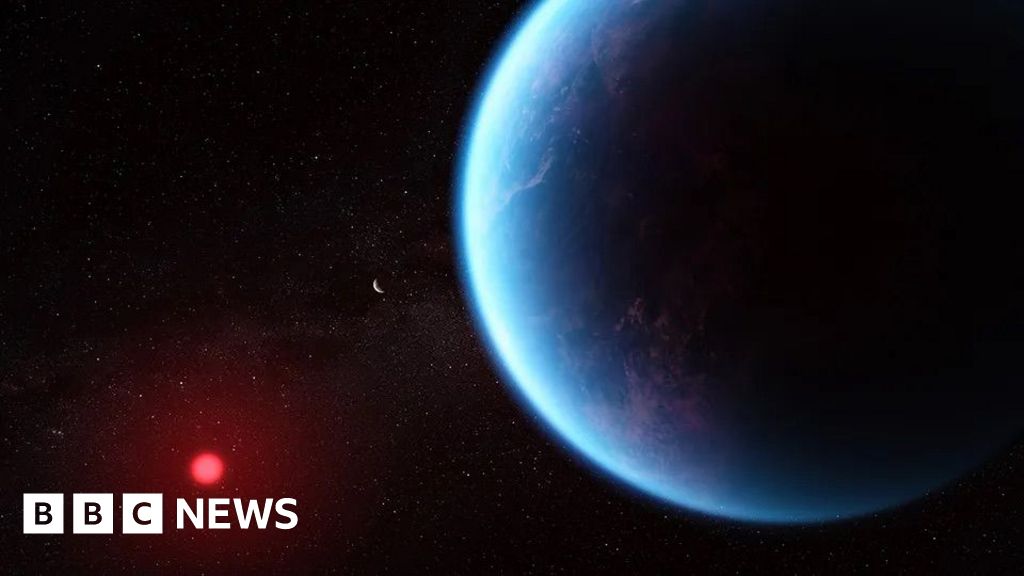Dr Nikku Madhusudhan Leads Team to Discover Life Signs on K2-18b
The discovery of dimethyl sulfide and dimethyl disulfide on K2-18b has sparked excitement and skepticism in the scientific community, with many experts awaiting further confirmation of the findings. As researchers continue to study the planet, the possibility of life on K2-18b remains a tantalizing prospect that could have significant implications for our understanding of the universe.

Scientists have detected signs of life on a distant planet, K2-18b, using NASA's James Webb Space Telescope, led by Prof Nikku Madhusudhan from Cambridge University, who found molecules associated with simple organisms in the planet's atmosphere.
The team detected dimethyl sulphide and dimethyl disulphide, molecules produced by marine phytoplankton and bacteria on Earth, in the atmosphere of K2-18b, a planet 8.6 times as massive and 2.6 times as large as Earth. The discovery suggests that K2-18b could have an ocean teeming with life, but scientists stress that more research is needed to confirm the findings.
The James Webb Space Telescope detected chemical fingerprints of dimethyl sulfide (DMS) and/or dimethyl disulfide (DMDS), which are only produced by life on Earth, primarily microbial life. The findings have reached a 0.3% probability of being a chance occurrence, but the researchers say that 16-24 hours of follow-up observation time with JWST may reach the 0.00006% probability threshold for scientific discovery.
The discovery has the potential to answer the question of whether we are alone in the universe. While the results are exciting, other experts are skeptical and believe that confirming the existence of life on another world will take much more time and data. The team is planning further theoretical and experimental work to determine if DMS and DMDS can be produced non-biologically at the levels inferred.
The detection of life signs on K2-18b is a significant step forward in the search for life beyond our solar system, and further research is needed to confirm the findings. The team, led by Dr Nikku Madhusudhan, is cautiously optimistic and awaits the results of further observations to determine the validity of their discovery.